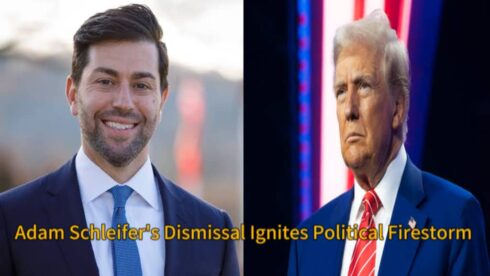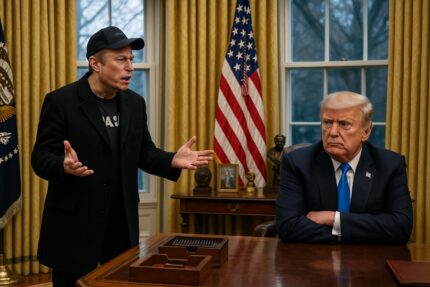Adam Schleifer, a seasoned federal prosecutor known for his work on financial crimes and corruption cases, has been unexpectedly dismissed while leading an investigation into a major donor associated with President Donald Trump. His removal has ignited concerns over potential political interference, as Schleifer was reportedly delving into alleged illegal campaign contributions and financial misconduct.
Adam Schleifer’s firing comes at a critical moment in the case, with legal experts questioning whether it was a calculated move to stall or derail an ongoing investigation. The Justice Department has not provided a clear explanation for the decision, but lawmakers are demanding transparency, calling for an independent review of the circumstances surrounding his dismissal.
Adam Schleifer’s Focus on Trump Donor’s Financial Dealings
Adam Schleifer had been investigating whether a Trump donor engaged in fraudulent financial activities, including the illegal funneling of foreign funds into U.S. elections. His probe targeted complex financial networks, potentially involving shell companies and undisclosed transactions that could violate federal election laws.
Adam Schleifer’s removal now raises concerns about whether key findings and evidence will be pursued without obstruction. Insiders suggest that subpoenas had already been issued and witnesses were preparing to testify before a grand jury. If the investigation is disrupted, it could prevent authorities from uncovering potential wrongdoing tied to influential political figures.
Adam Schleifer’s Firing Sparks Obstruction of Justice Concerns
Adam Schleifer’s sudden dismissal has drawn alarm from legal scholars and former prosecutors, who view it as a possible case of obstruction of justice. They argue that removing a prosecutor in the midst of a high-profile financial investigation undermines the integrity of the U.S. judicial system and sets a dangerous precedent.
Schleifer’s case is now being compared to past instances where Trump was accused of using executive power to hinder legal probes. His firing echoes previous removals, such as those of former FBI Director James Comey and U.S. Attorney Geoffrey Berman, both of whom had been investigating matters linked to Trump’s associates. Calls for an independent special counsel are growing amid fears of political interference.
Adam Schleifer’s Dismissal Ignites Political Firestorm
Adam Schleifer’s firing has become a flashpoint in Washington, with Democrats decrying it as an attack on prosecutorial independence and Republicans defending it as a routine personnel decision. Democratic lawmakers are demanding an immediate Justice Department review, urging congressional oversight into whether political pressure played a role in the removal.
Adam Schleifer’s case has also been weaponized in the broader political battle over legal accountability. Trump’s allies claim that prosecutors serve at the discretion of the executive branch, arguing that his dismissal does not necessarily indicate misconduct. However, legal watchdogs warn that the move may embolden future political interference in high-stakes corruption cases.
Adam Schleifer’s Firing Raises Institutional and Legal Concerns
Adam Schleifer’s dismissal has prompted deeper discussions about the vulnerability of federal prosecutors to political retaliation. If his removal was orchestrated to disrupt an investigation, it could weaken the ability of law enforcement agencies to hold powerful figures accountable. Legal scholars argue that stronger safeguards are needed to prevent politically motivated firings in sensitive cases.
Adam Schleifer’s firing also fuels calls for judicial reforms that would ensure prosecutorial independence in politically charged investigations. Without protections against executive interference, experts warn that public trust in the legal system could erode, leaving future corruption probes vulnerable to similar disruptions.
Schleifer’s Case Sparks Calls for Oversight and Transparency
Schleifer’s firing has led to renewed demands for oversight, with members of Congress pushing for a formal inquiry. The House Judiciary Committee is reportedly considering hearings to determine whether political motives played a role in his removal, while advocacy groups are urging the Justice Department to release more details about the decision.
Schleifer’s case has intensified pressure for a special counsel to take over the investigation and ensure that justice is served without political obstruction. If further evidence emerges linking his firing to efforts to shield a powerful Trump donor, legal and political battles could escalate, shaping the future of prosecutorial independence and accountability in the United States.














